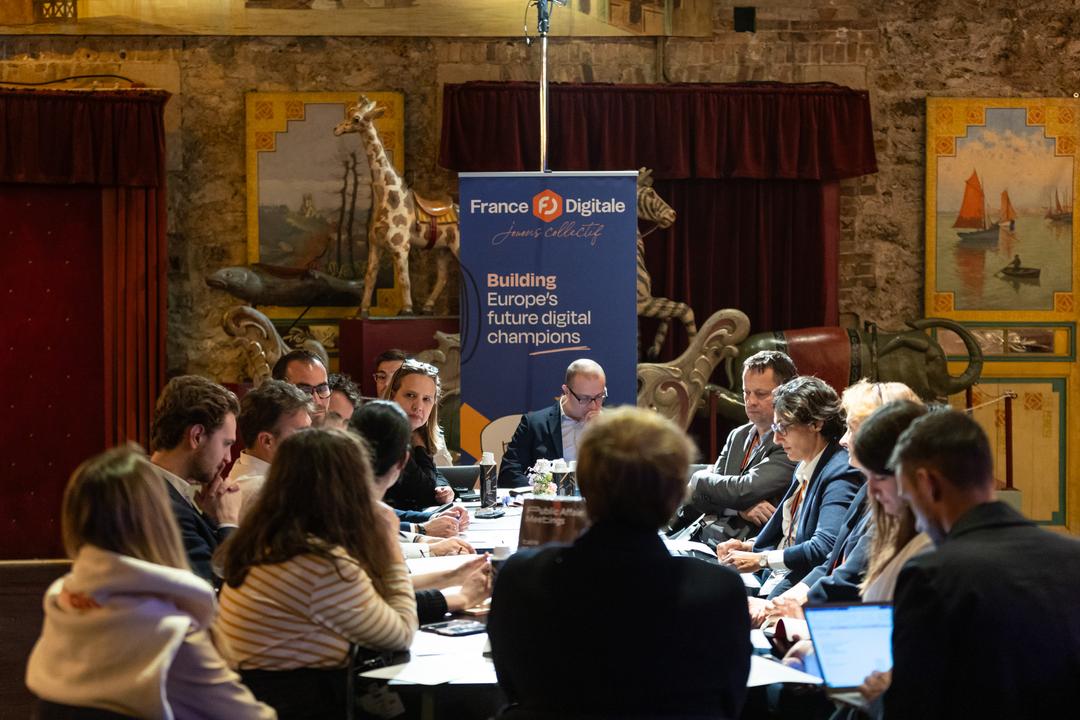
For a 28th European regime
Europe
Faced with the findings of the recent Letta and Draghi reports on European competitiveness, and following the mobilization of thousands of European entrepreneurs and investors around the EU Inc petition, France Digitale is joining forces with more than twenty startups associations in Europe to put forward proposals on the 28th regime, a new EU-wide status for young and innovative companies announced by Ursula von der Leyen. This 28th regime status is one of the essential keys to unlocking the capabilities of European businesses, and enabling them to finally benefit from a true single market.
Europe has one of the largest markets in the world, with 450 million consumers. Yet, as revealed by the recent Letta and Draghi reports on European competitiveness, our continent’s companies still face a major problem: the impossibility of scaling up within the European Union, despite the so-called single market.
As a result, our European companies remain strictly national champions, limited by different regulatory and administrative barriers in each of their neighbors. As a result, 70% of our European scale-ups choose to export first and foremost to the USA [figure taken from the LETS 2024 mapping].
To further develop our European champions, Commission President Ursula von der Leyen announced in July the creation of the 28th regime, a European scheme to help young innovative companies grow on the continent.
The EU Inc petition, launched by founders and investors last Monday (October, 14) to promote the idea of the 28th regime, has already attracted over 10,000 signatories.
While the idea of the 28th regime is not new, to be adopted it needs to be attractive to entrepreneurs and investors. That’s why, in collaboration with the teams at EU Inc and more than twenty associations of European startups, scale-ups and investors, France Digitale has drawn up concrete proposals and demands for this 28th regime:
- In practice, this new legal status would be aimed at any company with a head office in Europe and a vocation to expand beyond its national market.
- Companies would benefit from a set of rights harmonized across the European Union. For example, a single legal status would avoid the need to create a new legal entity each time an office was opened in a new European country. When raising funds, applying for grants or responding to invitations to tender, it would avoid the need for documents to be translated into each requested language, or for a sworn notary to verify the legal value of documents.
- This status would offer companies adopting it a set of additional rights, to simplify their European expansion. For example, by providing access to a stock option scheme for employees that is harmonized and simplified across the European Union, facilitating employee shareholding, an area where Europe lags behind the United States. Or by offering access to harmonized European labor law standards, simplified access to public procurement, derogations on state aid rules, more advantageous contractualization rules and overall harmonization of sectoral rules.
We will be careful to ensure that this 28th regime company status can be implemented easily, for any company with European ambitions. The key to this status will be its adoption, which will have to be massive, so that Europe can finally create champions of innovation that benefit, first and foremost, European citizens.
These proposals have been sent to MEPs and Commissioners, with hearings scheduled for November 4-12 in Brussels. Vice-Presidents Stéphane Séjourné and Henna Virkkunen, responsible respectively for industry and technological sovereignty, and Irish candidate Michael McGrath, Commissioner for Justice, are particularly concerned by the subject and its concrete realization in the coming months.
Maya Noël, Managing Director of France Digitale, comments: “Today, European companies face an obstacle race when they want to export to their neighbors. 27 countries and as many national regulations slow down scaling up on our continent and push us to turn to the United States or Asia to develop on larger markets. The political ambition of the President of the European Commission to finally achieve a single market through a 28th regime is a tremendous opportunity for our innovation ecosystem. With all our counterparts, we are mobilizing through concrete proposals to make this ambition a reality.”
Andreas Klinger, initiator of EU Inc adds: “The European founders and investors are united in calling for a single pan-European startup entity. It will unlock a new wave of growth, investment and innovation. The time for action is now!”
Signatory organizations alongside France Digitale : Adigital, Allied for Startups, Austrian Startups, BESCO – The Bulgarian Entrepreneurial Association, Beta-i, Danish Entrepreneurs, Dutch Startup Association, Estech, EU Inc, Euratechnologies, European Champions Alliance, European Startup Network, Iconomy, Innovate Europe Foundation, InnovUp, Italian Tech Alliance, Latitude59, Roma Startup, ROTSA – Romanian Tech Startups, Scale-ups.eu/Startup.be, Startup Greece, Startup Hungary, Startup Portugal, Startup Verband, Startup Reaktor, Techcelerator, Tech Lounge Association – Innovation Labs
